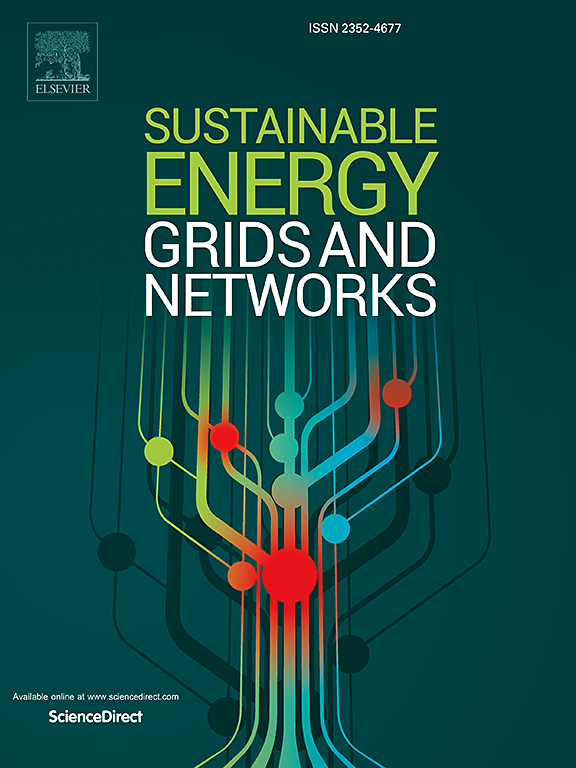Optimal scheduling of smart home appliances with a stochastic power outage: A two-stage stochastic programming approach
IF 4.8
2区 工程技术
Q2 ENERGY & FUELS
引用次数: 0
Abstract
This study primarily concentrates on enhancing the scheduling of electric appliances within a smart home equipped with a photovoltaic solar array and a storage battery capable of redistributing excess electricity to the grid. Furthermore, the investigation takes into consideration the unpredictability of a power outage, analyzing the scheduling of these appliances to minimize consumer electricity expenses. To tackle this issue, a two-stage stochastic programming methodology is developed to effectively model the uncertainty surrounding both the onset time and duration of power outages. Additionally, a sample average approximation algorithm (SAA) is devised to efficiently address the problem. Through extensive computational experiments, the outcomes demonstrate that the SAA yields shorter CPU processing times, albeit without guaranteeing optimal solutions. The total average percent deviation of the SAA's upper bound from its lower bound and the optimal solution stands at 4.16 % and 4.5 %, respectively. Moreover, it is demonstrated that utilizing the stochastic approach, as opposed to the deterministic one, can enhance solution quality by 6.2 %. Furthermore, a comprehensive sensitivity analysis is provided, focusing on probability distribution functions of outage start time and duration, alongside an analysis of the solar panel and battery storage capacities. It is revealed that when adopting a Normal distribution instead of a Uniform distribution, the performance of the SAA experiences a slight decline.
随机停电情况下智能家电的优化调度:两阶段随机编程方法
本研究主要集中于加强智能家居中电器的调度,该智能家居配备了光伏太阳能电池阵列和蓄电池,能够将多余的电力重新分配给电网。此外,研究还考虑到了停电的不可预测性,分析了这些电器的调度,以最大限度地减少消费者的电费支出。为解决这一问题,我们开发了一种两阶段随机编程方法,以有效模拟停电开始时间和持续时间的不确定性。此外,还设计了一种样本平均近似算法(SAA)来有效解决这一问题。通过大量的计算实验,结果表明 SAA 可以缩短 CPU 处理时间,但不能保证获得最佳解决方案。SAA 上限与下限和最优解的总平均偏差分别为 4.16 % 和 4.5 %。此外,研究还表明,与确定性方法相比,采用随机方法可将解决方案的质量提高 6.2%。此外,还提供了全面的敏感性分析,重点是停电开始时间和持续时间的概率分布函数,以及对太阳能电池板和蓄电池容量的分析。结果表明,当采用正态分布而非均匀分布时,SAA 的性能会略有下降。
本文章由计算机程序翻译,如有差异,请以英文原文为准。
求助全文
约1分钟内获得全文
求助全文
来源期刊

Sustainable Energy Grids & Networks
Energy-Energy Engineering and Power Technology
CiteScore
7.90
自引率
13.00%
发文量
206
审稿时长
49 days
期刊介绍:
Sustainable Energy, Grids and Networks (SEGAN)is an international peer-reviewed publication for theoretical and applied research dealing with energy, information grids and power networks, including smart grids from super to micro grid scales. SEGAN welcomes papers describing fundamental advances in mathematical, statistical or computational methods with application to power and energy systems, as well as papers on applications, computation and modeling in the areas of electrical and energy systems with coupled information and communication technologies.
 求助内容:
求助内容: 应助结果提醒方式:
应助结果提醒方式:


